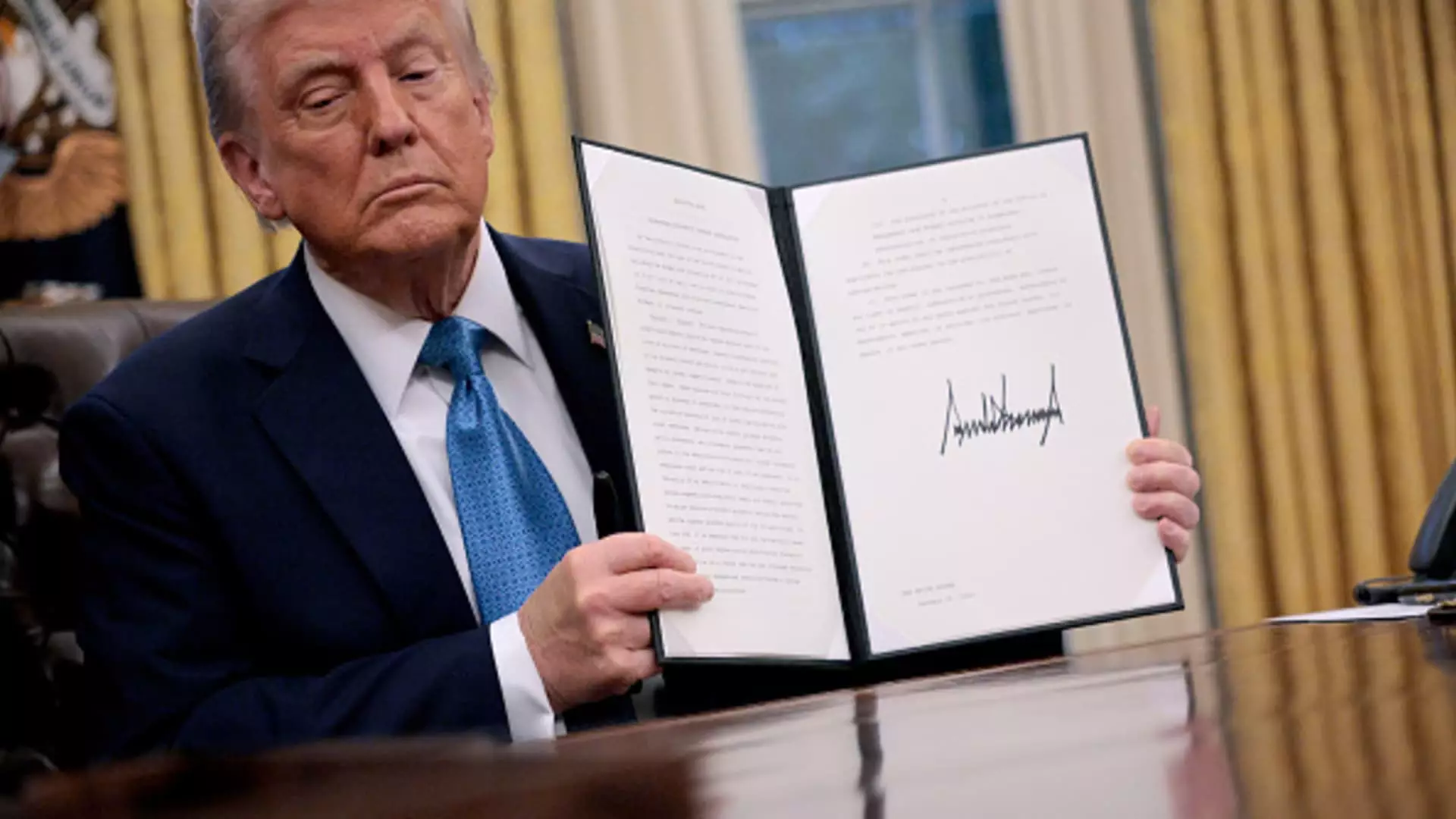The potential onset of a global trade war under President Donald Trump has sent tremors through the U.S. stock market, resulting in significant declines across various industries. As tariffs are imposed on imports from Mexico, Canada, and China, a ripple effect of economic consequences is unfolding, suggesting a future filled with increased prices for consumers and uncertainty for businesses.
Tariffs are not just vague economic policies; they are catalysts that can reshape market dynamics almost overnight. The Trump administration’s decision to implement a 25% tariff on goods from Mexico and Canada, paired with a 10% levy on imports from China, generated immediate scrutiny. Major industries reliant on international supply chains, such as automotive, retail, beverage, and industrial sectors, have all fallen under the backlash of these tariffs. Businesses across the board felt the heat, awakening fears of increased transportation costs and disrupted supply chains, which could ultimately dampen overall business confidence.
Major firms like General Motors, Ford, and Stellantis face particularly daunting challenges. These companies have historically benefited from cross-border manufacturing efficiencies, which may now be jeopardized. The operational impacts could lead to a strategic shift in manufacturing locations, forcing them to bring production back to the U.S. at higher costs. This maneuver could quickly ramp up the final price tags for consumers, which is an unsettling prospect in the current economy.
The beverage industry finds itself in dire straits as well. Constellation Brands, a substantial importer of alcoholic beverages from Mexico, exemplifies the struggles these companies might face. With a 25% tariff looming, Canadian authorities have even hinted at removing American products from their liquor shelves—an alarming thought for American suppliers.
In the world of consumables, companies like Chipotle Mexican Grill and Calavo Growers, heavily reliant on Mexican agricultural products, may experience significant cost increases due to tariffs on imports like avocados. This could subsequently lead to higher menu prices, which could deter customers at a time when competition is fierce in the restaurant sector.
Sportswear brands such as Nike and Lululemon aren’t out of the woods either. With hefty reliance on Chinese imports for essential materials and a considerable market presence in China, these brands may not only grapple with increased production costs but also with the fallout of souring business relations stemming from the trade war.
The retail sector, particularly discount retailers such as Five Below and Dollar General, is uniquely vulnerable. The nature of their business relies on high volumes of inexpensive goods imported from China. The tariffs threaten to undermine their business model, potentially leading to reduced profit margins. For these retailers, raising prices may not be a viable solution given their customer base, which is often looking for low-cost options.
Even the luxury apparel sector isn’t immune. Canada Goose, a high-end outerwear brand based in Canada, may also feel the pinch from the imposition of tariffs. The enhanced cost of imported materials can lead to a cascade of increased prices, ultimately impacting consumer purchasing decisions.
Logistics companies and rail operators such as Union Pacific, Norfolk Southern, and Canadian Pacific Kansas City are bracing for potentially disruptive consequences as tariffs impede the smooth flow of goods across borders. The heightened duties promise to slow down freight transit times, jeopardizing revenue streams and operational efficiencies.
Moreover, the tariffs have put a dent in the burgeoning online retail sector. They target provisions like “de minimis,” which allowed online retailers to ship products worth less than $800 into the U.S. duty-free. This alteration will heavily affect platforms like Temu and Alibaba’s AliExpress as they navigate this new trade environment, which could ultimately lead to increased product prices and diminished consumer choices.
As the U.S. grapples with these new tariffs, the overarching consequences on the stock market and industries could lead to a significant reevaluation of trade policies. The interplay between increased tariffs and international relations may result in a complex landscape for businesses and consumers alike. Amid uncertainties, one thing is clear: these developments necessitate strategic planning and adaptive strategies across the U.S. economy to mitigate the risks presented by an escalating trade war.

